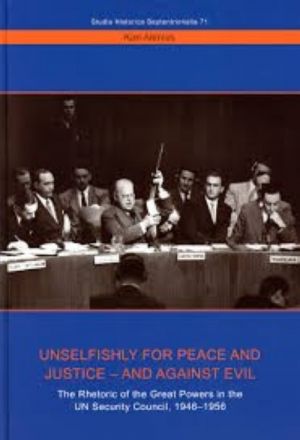This study examines the rhetoric used by the great powers in the United Nations Security Council in the context of the international crises that occurred between 1946 and 1956. The topic is an important one, in that, first and foremost, the arguments the great powers presented to the public in the context of various international crises represent integral parts of those powers political agendas. Thus these arguments warrant a fundamental assessment. Additionally, the United Nations Security Council, which became functional in early 1946, represented the most central and enduring forum for debating international crises after the Second World War. To the great powers, the Security Council represented a public forum of sorts, one where they might justify their political positions, undermine the policies of their opponents, or sway the dissenting nations around to their point of view.
This study examines the rhetoric used by the great powers in the United Nations Security Council in the context of the international crises that occurred between 1946 and 1956. The topic is an important one, in that, first and foremost, the arguments the great powers presented to the public in the context of various international crises represent integral parts of those powers political agendas. Thus these arguments warrant a fundamental assessment. Additionally, the United Nations Security Council, which became functional in early 1946, represented the most central and enduring forum for debating international crises after the Second World War. To the great powers, the Security Council represented a public forum of sorts, one where they might justify their political positions, undermine the policies of their opponents, or sway the dissenting nations around to their point of view.













